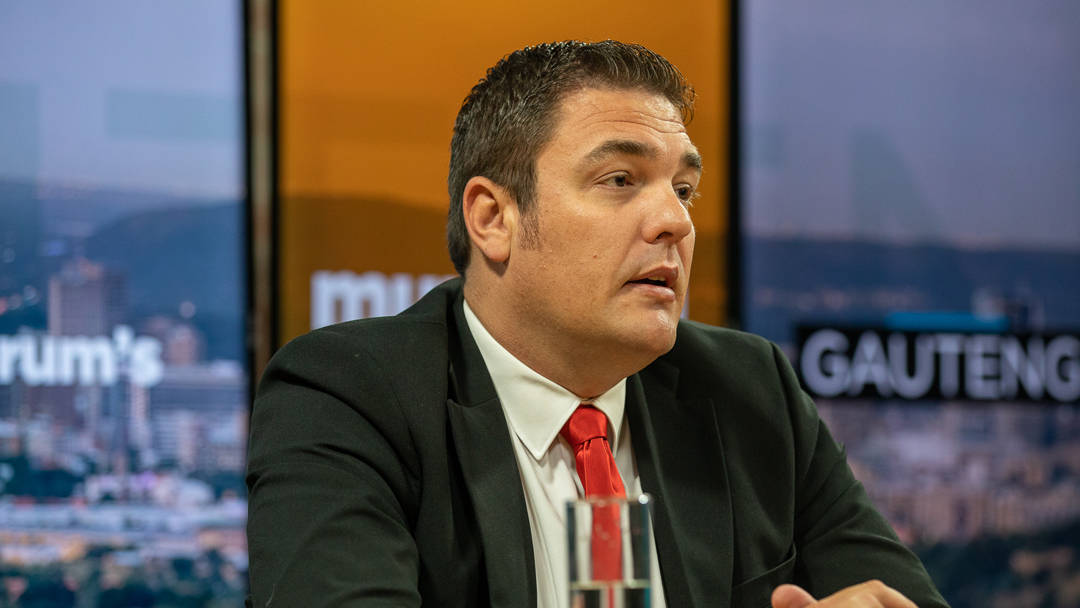A cautionary tale: Mugabe’s lasting legacy in Zimbabwe
By Dr Eugene Brink, Strategic Adviser for Community Affairs at AfriForum
The death of a nonagenarian despot such as Robert Mugabe is bound to elicit some strange odes and obituaries, as well as mixed reactions, in Zimbabwe, South Africa and abroad.
African leaders (most of them tyrants or at least autocrats themselves) resorted to unnuanced hero worship. Most importantly, President Emmerson Mnangagwa of Zimbabwe promised that the ruling party will ensure that the status of “national hero” is posthumously bestowed upon Mugabe.
Much of the media around the world, the Zimbabwean diaspora and large segments of the public in Zimbabwe had nothing but scorn – muted as well as more outspoken – for the former leader. Many blame him for the extremely adverse circumstances in the country. His abuses, impunity, self-enrichment and brutal repression were roundly condemned.
Something not to be found in the reactions to his death is celebration, as his personal ouster in 2017 did not result in an interregnum or true change. Zimbabweans seem to be mourning more the state of their country than their former leader’s death. Zimbabwe today is still a basket case and the seemingly impossible has happened: circumstances are getting worse.
But whilst it is fine to indulge in bashing Mugabe’s long totalitarian rule and the damage it wrought, it is far more instructive to look at what caused these maladies, abuses and hardship, for they are merely symptoms of something else. The root cause of this oppression – and Mugabe’s main aim – was entrenched and absolute (not to mention, socialist) one-party rule. Not giving pause to this thought, is wasting an utterly precious debate and moment of reflection.
Zanubabwe unfolds
The fact that Mnangagwa rules Zimbabwe under the ever-watchful eyes of Zanu-PF and the state machinery it so omnipotently controls, is proof that Mugabe has, even in death, achieved his goal of cementing unchallenged one-party rule. This fact has ensured that dissidents and skilled ordinary Zimbabweans shorn of any hope that anything will ever change, have left the country.
“Mugabe’s objective, as he repeatedly stated from the outset of independence, was to establish a one-party state run by Zanu-PF. As became evident, he had fought the war not to achieve democracy but to gain total control,” writes Martin Meredith in his book The state of Africa: A history of fifty years of independence.
Mugabe knew he was at the cusp of a military victory when the Lancaster House peace negotiations took place in 1979. He made temporary concessions to mollify the British and some of the Zimbabwean political role-players and promised that land reform would be dealt with on a “willing-buyer-willing-seller” basis. He pledged (albeit grudgingly) gradual change and included former foes (black and white) in his cabinet and government.
This goodwill did not last long, however. Mugabe sacked his main political rival, Joshua Nkomo, from his cabinet in 1981 after coming to power only the year before. “Having removed Nkomo, and with (Ian) Smith’s Rhodesian Front powerless, the way was open for Mugabe to begin his construction of a one-party state, and he set about it with zeal and cunning,” writes Paul Kenyon in Dictatorland: The men who stole Africa.
With Nkomo, whose Zimbabwean African People’s Union (ZAPU) is a Ndebele-centred party, out of the way, Mugabe and his Shona-dominated ZANU could use instruments of state to eliminate all opponents. Starting in 1983 and led by its infamous North Korea-trained 5 Brigade, the regime murdered, tortured and raped tens of thousands of people in the Ndebele minority’s heartland of Matabelaland during the Gukurahundi operation.
With economic distress already a reality for most Zimbabweans in the 1990s, he started targeting white farmers under the aegis of parliament. A programme of “revolutionary” land reform was adopted, and this enabled the state to choose the farms they wanted at whatever price. This degenerated into a bedlam which enabled people connected to the state and Zanu-PF, and people without the necessary desire or skills to farm, to receive trophy farms when so-called war veterans willy-nilly grabbed land. Not only did this lead to many more murders and the collapse of the farming sector, but it wrecked the manufacturing and other economic sectors, swung a large swathe of valuable international opinion against the country and hastened disinvestment.
Today, despite some faux emollient gestures from Mnangagwa, Zimbabwe lies in ruins. Its people are subjected to power failures of up to 18 hours per day, cash and food shortages, intense deindustrialisation, rapidly rising fuel prices and mass unemployment. Until the founding of the Movement for Democratic Change (MDC) in 1999, Zanu-PF’s rule went unchallenged for nearly two decades during which ZANU co-opted an eviscerated (and nevertheless socialist) ZAPU in 1987 to form Zanu-PF. Their repression and violence understandably frightened and crushed many opponents, but no civil movement or opposition party challenged them during this period. The Ndebeles’ main political vehicle had been usurped and the white farmers and their organisations equivocated and stayed silent on the Gukurahundi horrors and other matters before they themselves were targeted. This process and timespan allowed Zanu-PF to conflate party and state and complete their total grip on power.
Apart from the abortive Government of National Unity, in which the disunited MDC played the role of a junior partner, the one-party infrastructure and narrative was never in serious trouble. The latest evidence of this is last year’s flawed election. Opposition supporters were brutalised and after some uproar, the status quo of one-party rule and elite enrichment continued unabated. This does not show any sign of changing and Mugabe has achieved the goal he fought for and articulated decades ago. Elections are a ritualistic rubber stamp on Zanu-PF rule, instead of the promotion of true pluralism.
South Africa and ANC hegemony
Zimbabwe’s fate should be a cautionary tale for South Africa, although it would be intellectually lazy to draw direct parallels. South Africa has never had a Robert Mugabe and Zanu-PF at the helm, but that does not mean the ANC isn’t aiming for permanent one-party rule (after all, former president Jacob Zuma has said that the ANC will rule until Jesus Christ returns) or that you need an Uncle Bob to sink a country in spectacular fashion. The ANC’s objectives are clearly outlined in its documents on the National Democratic Revolution, which presupposes African hegemony under eternal ANC rule. In practice, and certainly not unlike Zanu-PF, it merely legitimises ANC rule by touting (impoverished and chimerical) African hegemony and liberation sentiment whilst not delivering much in the way of economic and social progress.
The ANC’s failure to improve the economic plight of most black South Africans has resulted in its aiming for Zanu-PF’s short route to expropriation without compensation by leveraging its parliamentary majority. Black economic empowerment, just like its “indigenisation” counterpart in Zimbabwe, has failed to effectuate any meaningful change but will nevertheless remain policy for some time to come. If the dots are connected, freedom of speech is starting to unravel.
Just like in Zimbabwe, the opposition parties in South Africa are also to blame. Some of them have tried to out-ANC the ANC. Mealy-mouthed responses to harmful policies and reckless behaviour, and ideological confusion and copycatting of the ANC have resulted in emboldening the ANC and further entrenching one-party rule. The largest opposition parties in South Africa – as was historically the case with Zanu-PF in Zimbabwe – are leftist variants of the ANC. Ideologically, they essentially offer more of the same, sans the liberation identity. Coalition politics have also been a mixed success.
ANC one-party rule (with or without formal EFF support), like Zanu-PF rule, will not be disturbed by naive calls to constitutionalism and goodwill alone. Judges in South Africa are, after all, government employees and nothing suggests that they have fundamentally challenged ANC misbehaviour and hegemony, although they have chastised some unpopular individuals, such as Zuma. A fearless, independent and robust civil society, business sector and media – altogether missing in Zimbabwe today – are therefore an essential bulwark against one-party repression. In fact, this is what has at least slowed the decline caused by the ANC’s policies and actions. We cannot rely solely, or even principally, on elections to avoid a Zimbabwe-type breakdown. There is still time, but we need to act boldly and swiftly and speak (and do) truth to power.












